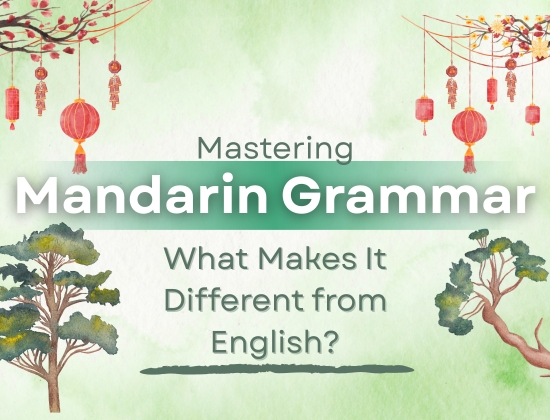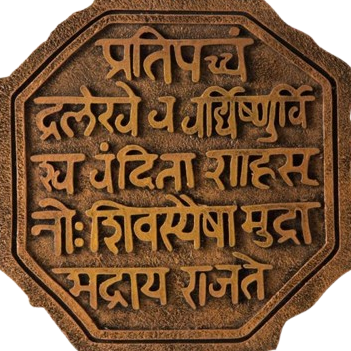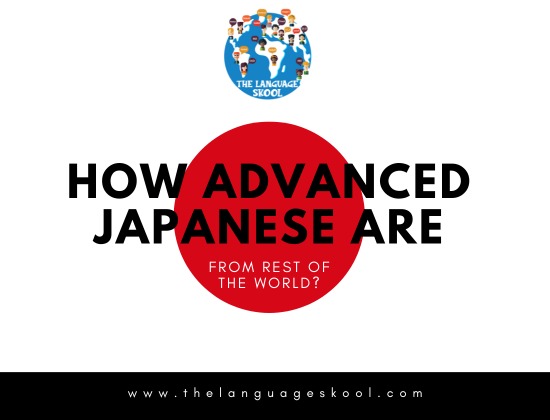
Mastering Mandarin Grammar: What Makes It Different from English?
.
Learning Mandarin can feel like stepping into an entirely new world especially when it comes to grammar. Unlike English, Mandarin has no verb conjugations, no plurals, and no tenses in the way English speakers expect. Yet, it's this simplicity in structure and logical flow that makes Mandarin both fascinating and accessible when taught the right way.
At The Language Skool (TLS), we help learners decode Mandarin grammar through interactive sessions, real-life practice, and a focus on understanding, not memorizing. But what truly sets Mandarin apart from English? Let’s break down the key differences.
1. No Verb Conjugation? Yes, Please!
One of the biggest shocks for English speakers is that Mandarin verbs never change form. In English, we say eat, ate, eaten. In Mandarin, it's just 吃 (chī) the same word whether you're eating now, yesterday, or tomorrow.
To express past, present, or future, Mandarin uses time indicators and aspect particles like 了 (le), 过 (guò), or 会 (huì), rather than changing the verb itself.
2. No Plurals or Articles
Forget about remembering whether it’s a cat or the cats. Mandarin doesn’t use articles like “a” or “the,” and most nouns don’t change for plural forms.
-
English: one apple, two apples
-
Mandarin: 一个苹果 (yí ge píngguǒ), 两个苹果 (liǎng ge píngguǒ)
The word 个 (ge) is a measure word, a unique part of Mandarin grammar that helps quantify nouns. This might sound new, but TLS learners master this using fun drills and visual aids.
3. Word Order is King
Mandarin grammar is highly contextual but surprisingly consistent in word order, usually following a Subject–Verb–Object (SVO) structure just like English!
-
I eat rice → 我吃饭 (wǒ chī fàn)
However, Mandarin emphasizes topic-comment structure, where the topic comes first, followed by a comment. That’s why you often hear:
-
这个电影,我很喜欢 (Zhège diànyǐng, wǒ hěn xǐhuan)
This movie, I really like.
This allows more flexibility in expression and puts emphasis where it matters most.
4. Tones Matter More Than Grammar Rules
Mandarin is a tonal language, which means that how you say something can be just as important as what you say. The word "ma" can mean “mother,” “horse,” or even form a question depending on the tone!
TLS trainers incorporate audio-visual exercises and speech correction tools to help you get comfortable with tones, which naturally improves grammar understanding too.
5. Question Formation is Easy
No need to rearrange the whole sentence. In Mandarin, you can often just add a particle like 吗 (ma) at the end to make a sentence into a question.
-
You like tea. → 你喜欢茶 (nǐ xǐhuan chá)
-
Do you like tea? → 你喜欢茶吗?(nǐ xǐhuan chá ma?)
Simple and efficient - just the way TLS likes to teach!
Why TLS Learners Excel in Mandarin
At TLS, we believe language learning should be engaging, goal-oriented, and culture-rich. Our Mandarin courses combine real-life practice, Personalized feedback, Grammar-through-usage techniques and Cultural immersion activities
Whether you're learning Mandarin for travel, career growth, or global communication, TLS gives you the confidence to speak fluently and accurately without grammar anxiety.
Final Thoughts
While Mandarin grammar might seem alien at first, it's actually incredibly logical and consistent. The key is to immerse yourself in its structure and rhythm. With expert guidance at The Language Skool, even beginners can unlock Mandarin fluency faster than they imagined.
Ready to start your Mandarin journey?
Book your free demo class with TLS today and discover why learners across the globe trust us to master new languages with ease!












